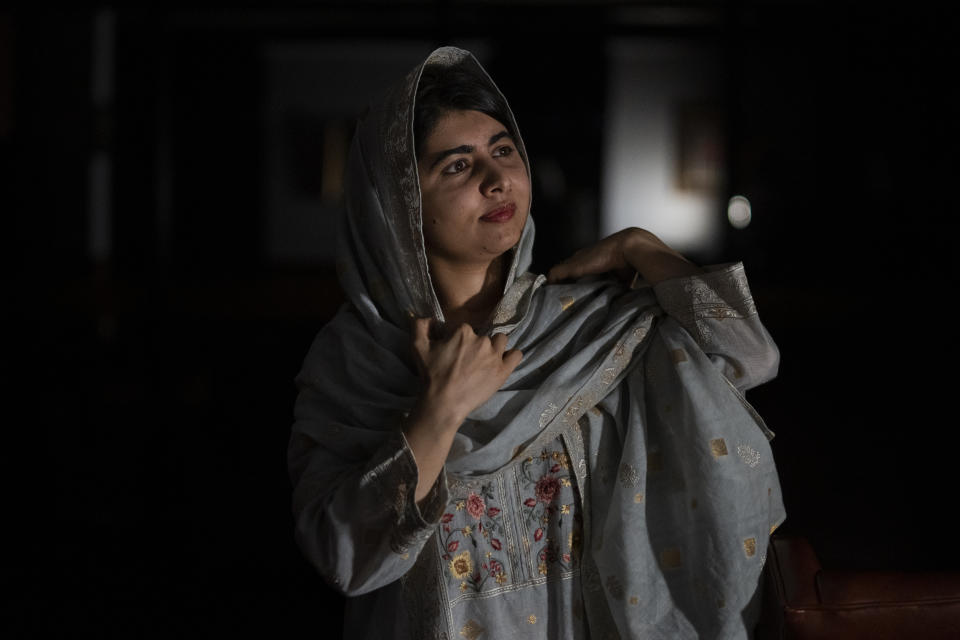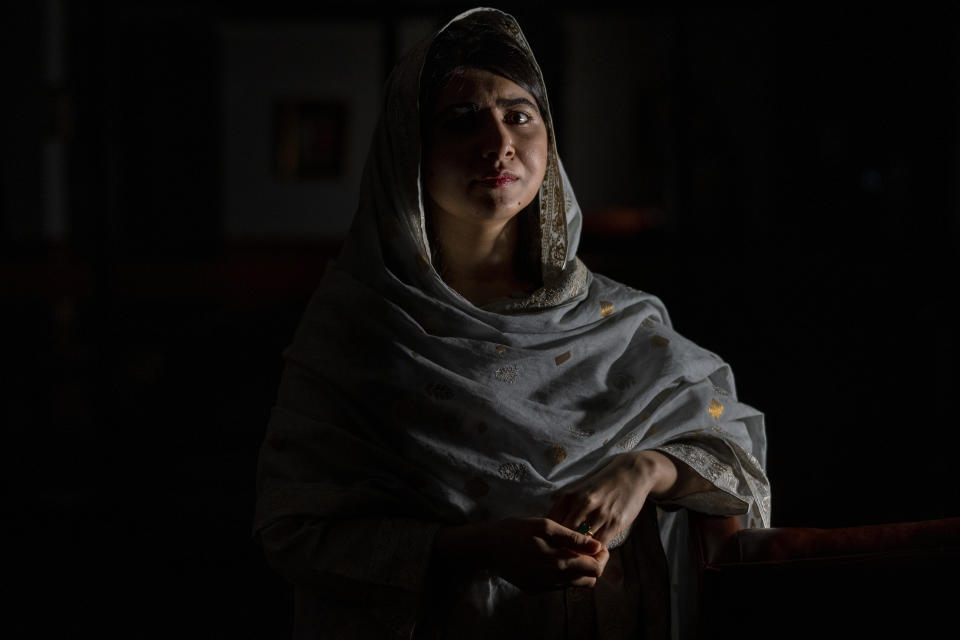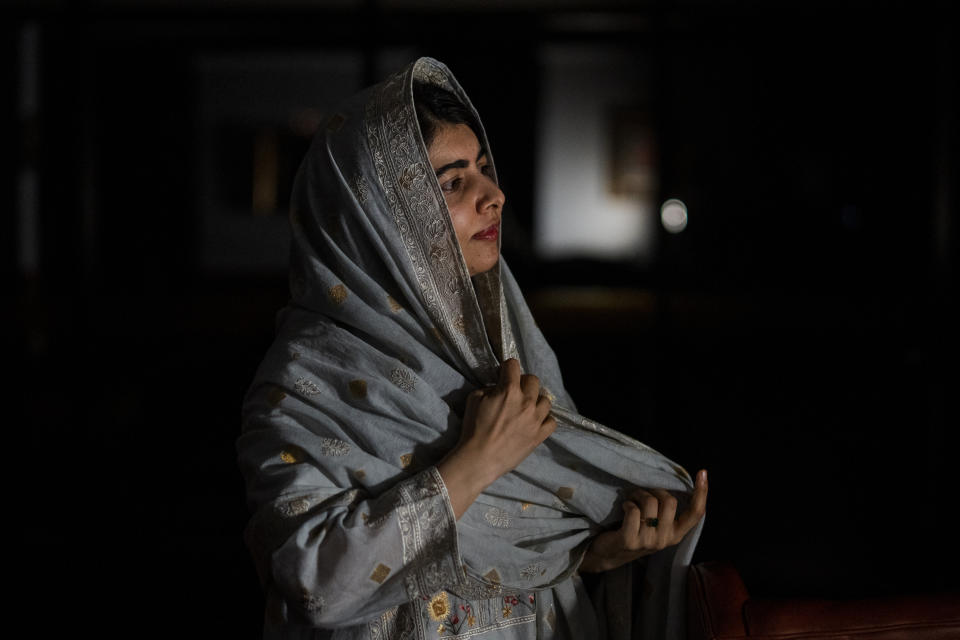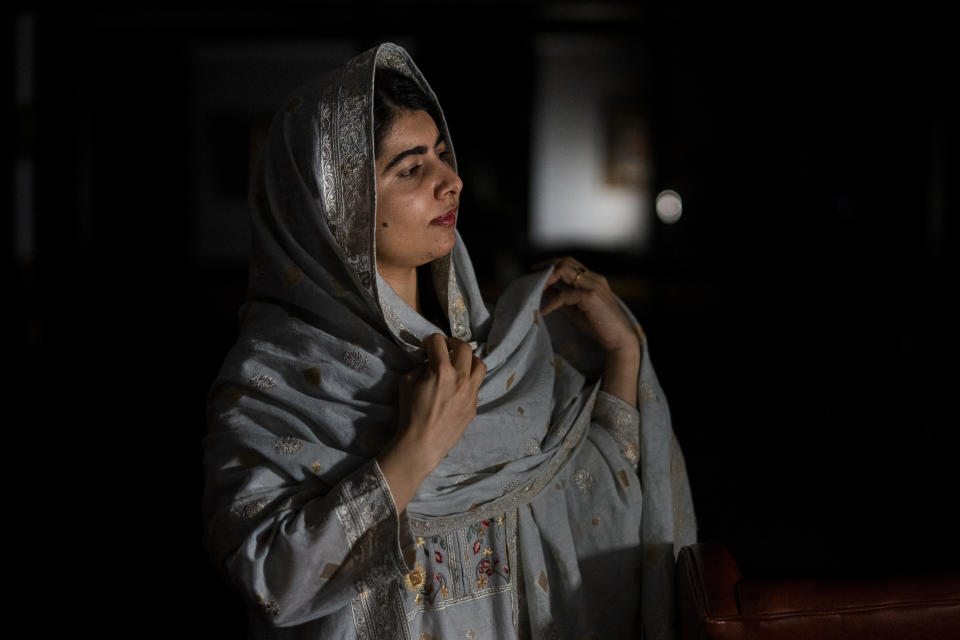Nobel laureate Malala Yousafzai urges world to confront Taliban's 'gender apartheid' against women
- Oops!Something went wrong.Please try again later.
- Oops!Something went wrong.Please try again later.
JOHANNESBURG (AP) — Nobel Peace Prize laureate Malala Yousafzai said Tuesday that the world needs to recognize and confront the “gender apartheid” against women and girls imposed by the Taliban since they seized power in Afghanistan more than two years ago.
She urged the international community to take collective and urgent action to end the “dark days” in Afghanistan. Yousafzai was awarded the peace prize in 2014 at the age of 17 for her fight for girls’ education in her home country, Pakistan. She is the youngest Nobel laureate.
Two years earlier, she survived an assassination attempt by the Pakistani Taliban — a separate militant group but an ally of the Afghan Taliban — when she was shot in the head on a bus after school.
The 26-year-old activist spoke to The Associated Press after delivering the annual Nelson Mandela lecture in Johannesburg on the 10th anniversary of the death of South Africa's anti-apartheid leader and Nobel laureate.
Yousafzai is also the youngest person to give the lecture, following in the footsteps of past lecturers, including former President Barack Obama, U.N. Secretary-General António Guterres and philanthropist and Microsoft founder Bill Gates.
She dedicated her speech to Afghan women and girls, hoping to re-focus the world’s attention on their oppression amid the wars in Gaza and Ukraine.
“It took a bullet to my head for the world to stand with me," she said. "What will it take for the world to stand with girls in Afghanistan?”
Since their takeover, the Taliban have banned education for girls beyond the sixth grade and imposed severe restrictions on women, barring them from work and most public spaces and seeking to implement their strict interpretation of Islamic law, or Sharia.
“Afghanistan has only seen dark days after it fell to the Taliban,” Yousafzai said in the AP interview. “It has been two and half years and most girls have not seen school again.”
Yousafzai appealed to the United Nations to “recognize the current state of Afghanistan as a gender apartheid” and cited recent reports of “women being detained, put into prisons and beaten and even put into forced marriages.”
“Two and a half years is a very long time,” Yousafzai said and added that it could cost a woman her future.
Yousafzai also described as “heartbreaking” Islamabad’s new policy of forceful deportations of Afghans who are in Pakistan illegally, saying that deporting them would put the lives of women and girls who are forced to go back at risk.
She also called for an immediate cease-fire in the Israel-Hamas war and decried that “so many children's and women’s lives (have been) lost” in besieged Gaza.
The war — sparked by the militant Hamas group's unprecedented Oct. 7 attack that killed about 1,200 people in Israel — has so far killed more than 15,890 people in Gaza, the majority of them women and children, according to the Hamas-run territory's Health Ministry, which does not differentiate between civilian and combatant deaths.
Yousafzai said the world must hold accountable those on both sides who have violated international law and committed war crimes.
“We need to make sure that we always are on the side of the innocent people,” she said. “And we are advocating for protecting them and we are advocating for stopping more wars and conflicts.”
Yousafzai praised the awarding of this year’s Nobel Peace Prize to Iranian women's rights and pro-democracy activist Narges Mohammadi, who remains imprisoned in Tehran’s notorious Evin Prison. Mohammadi's children are due to accept the Nobel medal and diploma on her behalf on Sunday.
“When we see more women being appreciated for their tireless efforts to bring justice, to fight against oppression and to fight against gender discrimination, it gives us hope because you realize that you are not alone," Yousafzai said.
Yousafzai began her fight against the oppression of women and girls by writing and publishing blogs at the age off 11.
She had a heartfelt message for young girls today, urging them to find their voice.
“Don’t wait for anyone else to speak for you,” she said. “You have the power to stand up for yourself.”
___
Imray reported from Cape Town, South Africa.




